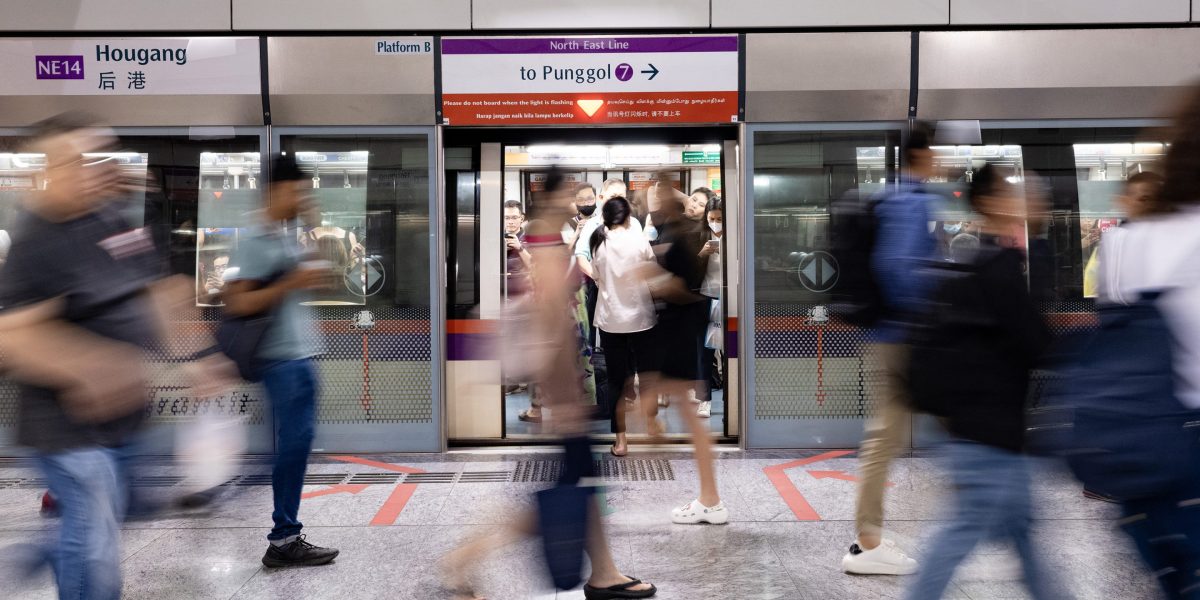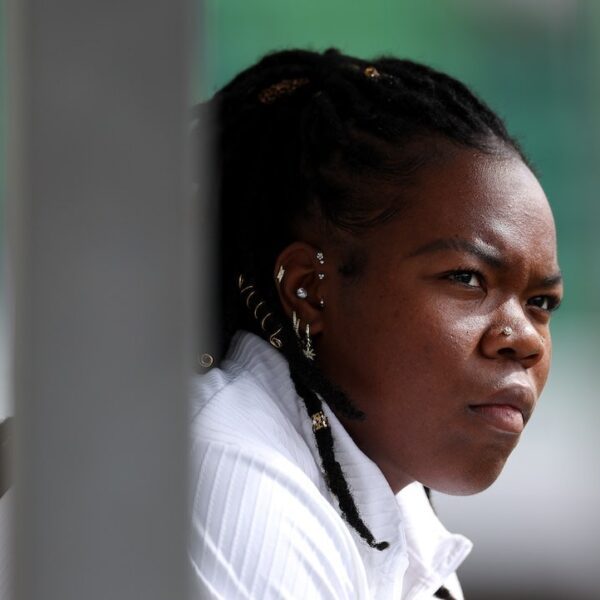Next May, Swedish commuters will be putting their faith in a Singaporean company to ensure they get to work on time. ComfortDelGro, a Singapore-based transport operator, won a bid earlier this year to operate and maintain the Stockholm Metro for 11 years. Connecting Stockholm, its joint venture with U.K.-based Go-Ahead Group, will oversee 100 stations, six depots, and 107 kilometers of track.
ComfortDelGro is a relatively late entrant in the business of mass rapid rail. Its subsidiary SBS Transit only started operating its first rail line, Singapore’s North East Line, an autonomous metro rail line, in mid-2003. SBS Transit’s second line, the country’s Downtown Line, which is also autonomous, came a decade later.
But now, the company is starting to edge out more established rail operators for global business. ComfortDelGro won the bid to operate Stockholm’s metro from Hong Kong’s MTR Corporation, which has run the Swedish city’s trains since 2009.
The Downtown Line achieved 8.1 million mean kilometers before a major fault (MKBF), a common measure for the reliability of rail operations, ComfortDelGro group CEO Cheng Siak Kian said in an interview in early September. That’s much greater than the global benchmark of 1 million MKBF.
“If you compare that standard to the other operators, we are way ahead,” Cheng said.


Courtesy of ComfortDelGro
ComfortDelGro’s North East Line clocked just over 2 million MKBF in 2023. SMRT, the company that operates Singapore’s other metro lines, also passed the 1 million MKBF threshold last year across three of its four lines. (SMRT’s fourth line has not yet fully opened)
According to the MTR’s most recent service newsletter, Hong Kong’s subway reached an average of 2 million kilometers before a major fault across eight of its 10 lines. It had an average of 8.8 million MKBF for the remaining two, the East Rail line and Tuen Ma line that link outlying districts to the city. The MTR does not provide an individual breakdown for each line.
‘Singapore experience’
Cheng credits the “Singapore experience”—a mix of tough regulators and demanding consumers—for ComfortDelGro’s rail success.
Singaporeans have long griped about the city’s rail system, which has gone through several major disruptions over the past decade. While reliability has improved, residents got an unwelcome reminder of how transport can be disrupted last week, when several stations on a SMRT-operated line were inoperable for six days due to extensive track damage.
Service was brought back to full capacity on Tuesday after extensive repairs to the track and trackside equipment. The damage was caused after a defective train axle box dropped onto the tracks, causing a part of the undercarriage to come of the running rail, according to a statement from SMRT. The derailed part then damaged tracks and track equipment as the train traveled between stations.
On Wednesday, Singapore’s transport regulator said it will launch a probe to find the root cause of the disruption. The investigation will likely take several months.
Delays and disruption have put operators “under the spotlight,” Raymond Ong, an associate professor at the department of civil engineering at the National University of Singapore, said before last week’s disruption
“We all learned from the period where we had many breakdowns,” he says. He credits a shift in how Singapore’s government managed its public transport systems, where regulators looked after infrastructure, thus allowing operators to focus on reliability and service standards.
That also means ComfortDelGro can’t rent out retail space in its metro stations, as it doesn’t own the real estate. In contrast, Hong Kong’s MTR Corporation generates significant revenue from real estate, including residential properties and shopping malls built on top of its subway stations.
ComfortDelGro thus needs to be cost-efficient in its operations if it wants to make money, says Timothy Wong, a senior lecturer in transportation economics and the National University of Singapore. That experience with keeping costs down might make ComfortDelGro an attractive partner in other markets.
What is ComfortDelGro?
ComfortDelGro is a multi-modal transport operator that dominates the Singapore public transport landscape. The company is the city-state’s biggest bus operator with 62% market share and is also the leading taxi operator with a fleet of over 8,700 taxis. It runs two of the six metro rail lines in the city-state, which represents about 83 kilometers of track, and an automated light-rail line that services residential districts.
The company was formed in 2003 through a merger between Comfort Group and DelGro Corporation. Both companies started in the 1970s, offering taxi and bus services.
ComfortDelGro had a revenue of $2.89 billion last year, placing it at No. 128 on Fortune’s Southeast Asia 500.
Besides Singapore, ComfortDelgro currently operates in 11 other countries. The company runs Metroline, the fourth-largest bus operator in London, UK with nearly 1,300 buses. It’s also Australia’s leading bus operator and operates the country’s largest taxi network. And it operates over 9,000 taxis and private hire cars across nine Chinese cities.
The company won four contracts worth $532 million to operate four public bus franchises in the U.K. city of Manchester in March, and three bus contracts worth $1.07 billion in Victoria, Australia in September. Operations for both those deals start in 2025.
But ComfortDelGro is perhaps seeing more rapid growth in its rail segment.


Courtesy of ComfortDelGro
ComfortDelGro, in a joint venture with the French companies RATP Dev and Alstom, won the right to operate part of the Paris Metro in July 2023, with passenger service starting end-2025. The company also operates rail services in Auckland, New Zealand’s largest city.
CEO Cheng expects ComfortDelGro’s global rail network to increase to over 300 kilometers by the end of 2025, compared to just about 80 kilometers four years ago. ComfortDelGro still has a “few other bits still in the pipeline,” he said, and predicted overseas markets could soon make up half the company’s revenue in the near term.
Currently, Singapore makes up 57% of ComfortDelGro’s revenue. Yet the country’s small size means ComfortDelGro needs to look overseas if it wants to keep growing.
“There’s a limit to how much more you can grow the point-to-point market in Singapore,” Cheng said. “How many more taxis can you put on the road?”














